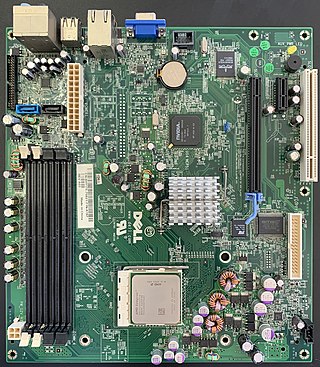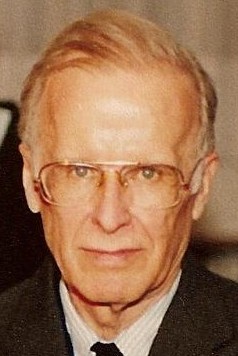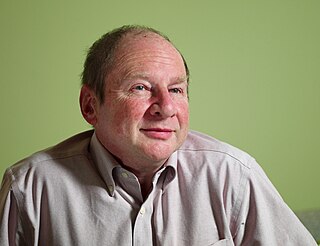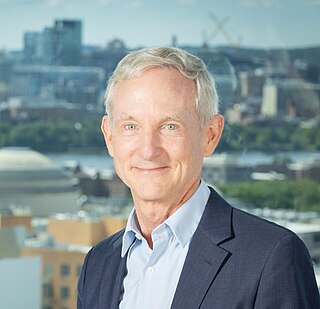Related Research Articles

Brian Wilson Kernighan is a Canadian computer scientist. He worked at Bell Labs and contributed to the development of Unix alongside Unix creators Ken Thompson and Dennis Ritchie. Kernighan's name became widely known through co-authorship of the first book on the C programming language with Dennis Ritchie. Kernighan affirmed that he had no part in the design of the C language.

Dennis MacAlistair Ritchie was an American computer scientist. He created the C programming language and, with long-time colleague Ken Thompson, the Unix operating system and B language. Ritchie and Thompson were awarded the Turing Award from the Association for Computing Machinery (ACM) in 1983, the IEEE Richard W. Hamming Medal from the Institute of Electrical and Electronics Engineers (IEEE) in 1990, and the National Medal of Technology from President Bill Clinton in 1999.

Computer engineering is a branch of computer science and electronic engineering that integrates several fields of computer science and electronic engineering required to develop computer hardware and software. Computer engineering is referred to as computer science and engineering or Electrical and Computer engineering at some universities

John Warner Backus was an American computer scientist. He led the team that invented and implemented FORTRAN, the first widely used high-level programming language, and was the inventor of the Backus–Naur form (BNF), a widely used notation to define syntaxes of formal languages. He later did research into the function-level programming paradigm, presenting his findings in his influential 1977 Turing Award lecture "Can Programming Be Liberated from the von Neumann Style?"
Alfred Vaino Aho is a Canadian computer scientist best known for his work on programming languages, compilers, and related algorithms, and his textbooks on the art and science of computer programming.
Computer science is the study of the theoretical foundations of information and computation and their implementation and application in computer systems. One well known subject classification system for computer science is the ACM Computing Classification System devised by the Association for Computing Machinery.

Malcolm Douglas McIlroy is an American mathematician, engineer, and programmer. As of 2019 he is an Adjunct Professor of Computer Science at Dartmouth College. McIlroy is best known for having originally proposed Unix pipelines and developed several Unix tools, such as spell, diff, sort, join, graph, speak, and tr. He was also one of the pioneering researchers of macro processors and programming language extensibility. He participated in the design of multiple influential programming languages, particularly PL/I, SNOBOL, ALTRAN, TMG and C++.

Theoretical computer science is a subfield of computer science and mathematics that focuses on the abstract and mathematical foundations of computation.

Harold Abelson is an American mathematician and computer scientist. He is a professor of computer science and engineering in the Department of Electrical Engineering and Computer Science at the Massachusetts Institute of Technology (MIT), a founding director of both Creative Commons and the Free Software Foundation, creator of the MIT App Inventor platform, and co-author of the widely-used textbook Structure and Interpretation of Computer Programs, sometimes also referred to as "the wizard book."
Carver Andress Mead is an American scientist and engineer. He currently holds the position of Gordon and Betty Moore Professor Emeritus of Engineering and Applied Science at the California Institute of Technology (Caltech), having taught there for over 40 years.

Charles Eric Leiserson is a computer scientist and professor at Massachusetts Institute of Technology (M.I.T.). He specializes in the theory of parallel computing and distributed computing.

Frank Thomson "Tom" Leighton is an American mathematician who is the CEO of Akamai Technologies, the company he co-founded with the late Daniel Lewin in 1998. Leighton discovered a solution to free up web congestion using applied mathematics and distributed computing. Under his leadership, Akamai has evolved from its origins as a content delivery network (CDN) into the world's most distributed cloud platform, with leading solutions for content delivery, cybersecurity, and cloud computing.
Richard E. Blahut, former chair of the Electrical and Computer Engineering Department at the University of Illinois at Urbana–Champaign, is best known for his work in information theory. He received his PhD Electrical Engineering from Cornell University in 1972.
The William O. Baker Award for Initiatives in Research, previously the NAS Award for Initiatives in Research, is awarded annually by the National Academy of Sciences "to recognize innovative young scientists and to encourage research likely to lead toward new capabilities for human benefit. The award is to be given to a citizen of the United States, preferably no older than 35 years of age. The field of presentation rotates among the physical sciences, engineering, and mathematics."

Kurt Mehlhorn is a German theoretical computer scientist. He has been a vice president of the Max Planck Society and is director of the Max Planck Institute for Computer Science.

Kenneth Lane Thompson is an American pioneer of computer science. Thompson worked at Bell Labs for most of his career where he designed and implemented the original Unix operating system. He also invented the B programming language, the direct predecessor to the C language, and was one of the creators and early developers of the Plan 9 operating system. Since 2006, Thompson has worked at Google, where he co-developed the Go language.
References
- ↑ "The Harold Pender Award". School of Engineering and Applied Science, University of Pennsylvania. Archived from the original on February 22, 2012. Retrieved February 5, 2011.
- ↑ "Penn Engineering to Honor UNIX Co-Creators Dennis Ritchie and Kenneth Thompson with Pender Award". Penn Today. 2003-09-08. Retrieved 2024-09-20.
- ↑ "The Harold Pender Award Lecture". Penn Engineering. Retrieved 2024-09-19.